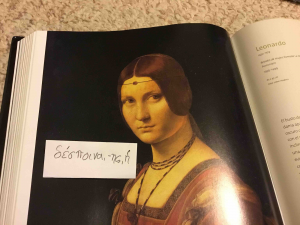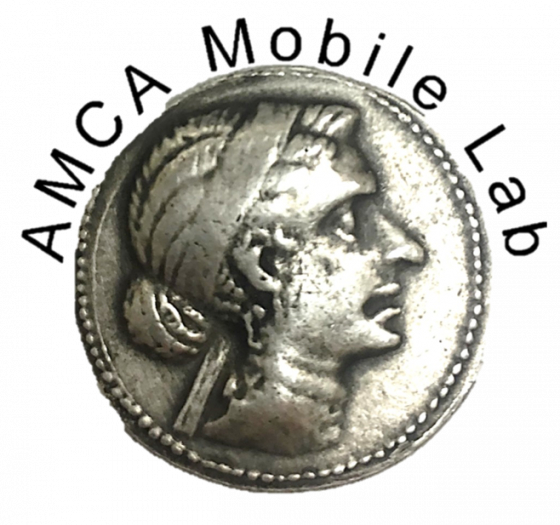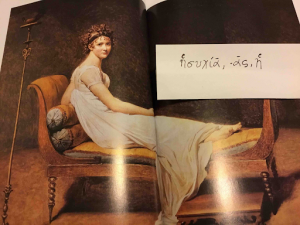Welcome back! AMCA Lab and Butler Classics are excited to kick off the new year with another spotlight on Laurita Mirkin, a Butler Alumna whose thirst for knowledge has drawn her back to school to study Ancient Greek. Continue reading to hear Laurita’s story!
A Lifetime Love of Language
“We grew up both in the French culture as my mother was Parisian. We attended French schools until high school abroad. Because we lived in South America, we also spoke Spanish. Being able to communicate with people from other countries and cultures is gratifying and brings one another closer. People open up if you know their language, even if speaking with an accent. It’s definitely enriching; other countries like Holland make kids study 5 languages or so. Rather humbling, isn’t it?”
Thank you, Butler!
“As a Butler student, I spent many hours at the science building, the beautiful library, and the AX house. I came from a family of physicians, and until my junior year, I thought about medical school. However, I changed my mind as a junior, as I did not want the difficult and sometimes poor quality of life that I had experienced being a daughter of a physician, who worked so many long hours. We think it’s glamorous, but physicians have a really tough life. It’s a noble yet difficult profession, and it drains a lot of family life. Yet I wanted to finish Chemistry which I had started. The MBA opened the door to business, many courses of Economics emphasized what we can do with policies, and how we can impact short and long-term families’ income and jobs. But still, I loved science and therefore did an adjacent career in Healthcare using both.”
“These degrees from Butler were the conduit for getting my first real job, which was a higher-level and higher-paying position. Because of my education, I was able to beat other candidates with more experience- Thank you, Butler! The challenging curriculum indeed prepared me for a career path which included a Fortune 5 company and IU Health.”
Returning to the Classroom
“Recently, I decided to enroll in Ancient Greek class with the purpose of increasing my knowledge of my religion. Greek is required for a Sacred Scriptures program that I am exploring. So this fall I found myself seated in a classroom at Jordan Hall, remembering these hallways that I started walking at sixteen and a half years old– 1,500 years ago…”
“I have enjoyed Introduction to Classical Greek more than I expected, firstly because of each of the wonderful students in our small and personalized class. The work, commitment, and maturity from each one are both noticeable and impressive.”
“And the professor: it is an honor to be taught by Dr. Kvapil. Dr. K makes learning a difficult (quite humbling) subject fun and exciting. She shares her love and passion for teaching Greek and Greek culture by telling us great stories from mythology, about the Gods, about the culture and society. Her deep knowledge and fabulous manner of teaching have especially made a mark—this class has been so much more special than imagined.”
Why Take Ancient Greek?
“To summarize, this Greek class is wonderful because:
- It is enriching culturally
- Life lessons learned: Aesop’s’ simple Fables, written more than 2,500 years ago teach us how to live better with one another.
- A “brain stretch”: improves memory function. Logical: Greek is consistent and logical which helps me to think more logically.
- Hidden Treasures: this language and this way of thinking bring us to a different space, a new place: unknown treasures waiting to be discovered.”
“We owe so much to this culture. I have read a few books about this culture, and I always have been fascinated by it– from the earliest philosophers to the history, to their leaders. Pericles is, in fact, one of my heroes, and what a role model- imagine building and bringing together the best of the world in literature, sculpture, art- and building the most beautiful and safe haven back then. Pericles avoided going to war, even paid their enemy to postpone it, until it was inevitable. We can learn a lot from the Greeks, and I wish our communities would follow suit. What do we do to move forward? To take care of our own? To improve our music, our literature?”
Thank you, Butler, for recruiting Dr. L. Kvapil and for giving me this opportunity.”

